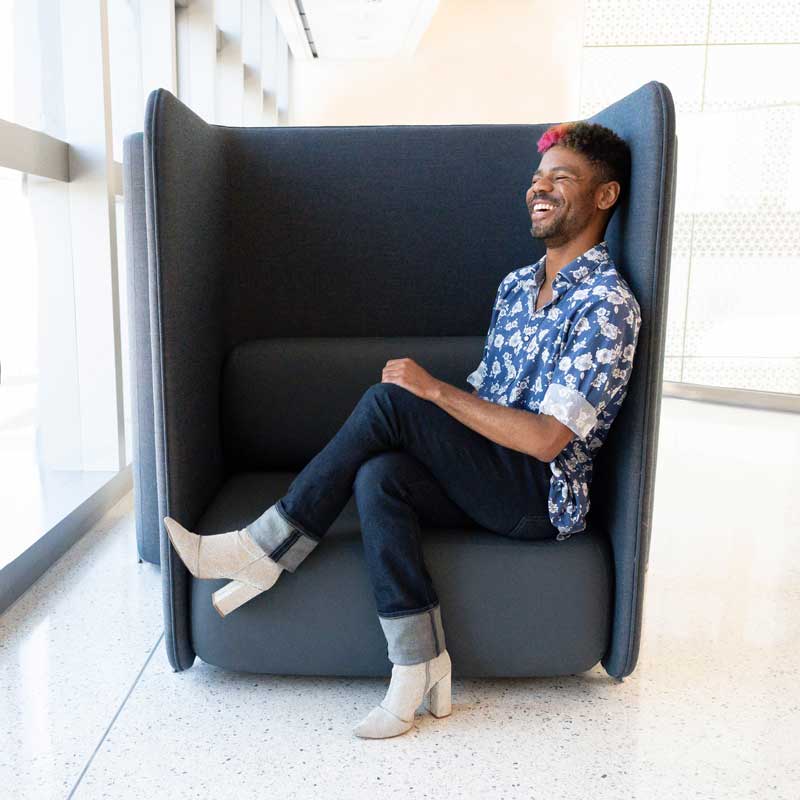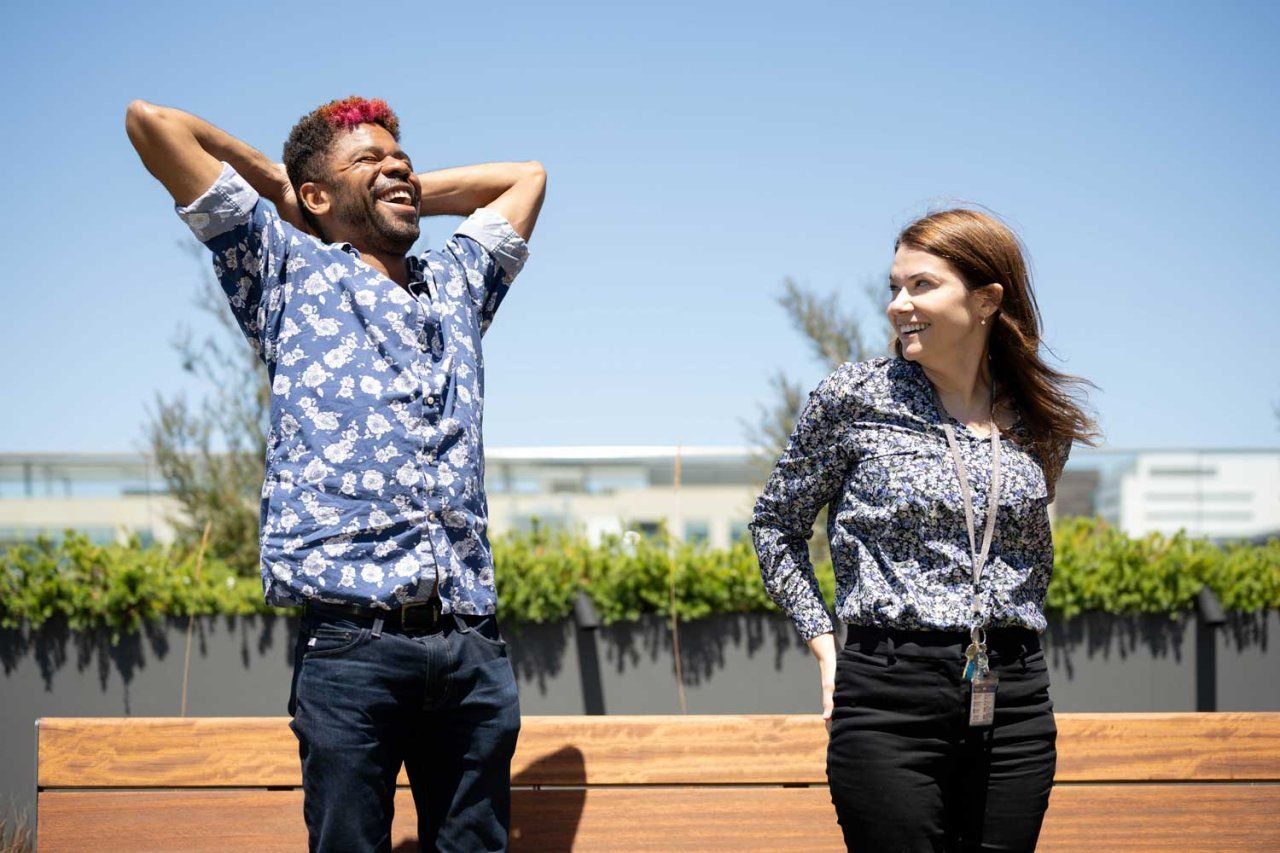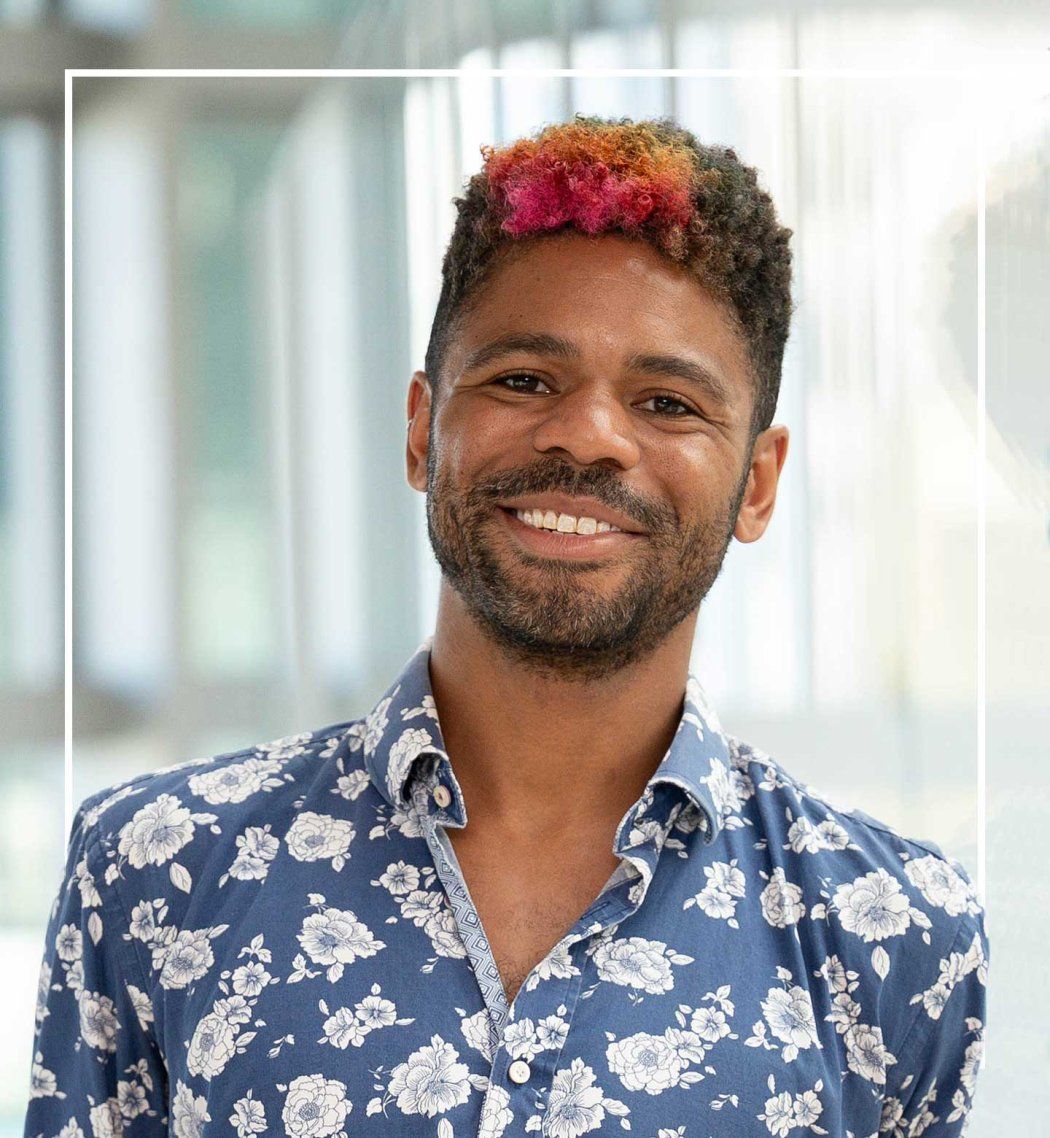This story is part of a series to raise the visibility of people living with a disability at UCSF and to share resources available at UCSF to serve and support this community. Join us as we share their stories.
While sometimes afraid to do so, Chase Anderson, MD, speaks his mind anyway – and with good reason.
The assistant professor of child and adolescent psychiatry in the UCSF School of Medicine lives with a history of depression and anxiety, tragically attempting suicide twice when he was younger.
Now in remission, Anderson is focused on leveraging his past trauma and using his current platform to alleviate those same challenges for others in his care and beyond.
“There were times that I thought whether things would be easier if I wasn’t gay … or Black,” Anderson said. “What I really wished for at the time was that society would treat someone like me better. I wished society would view me as a person. Part of the depression started because I was thinking I was wrong, that I wasn’t right for society.”
Managing ‘Minority Stress’
Born in Southern California and moving to Seattle when he was 13, Anderson had recently come out as gay. He later endured a traumatic experience at a private, mainly white Catholic School. There, he dealt with discrimination and developed depression, something he would come to label as “minority stress,” a term brought into public consciousness by Ilan Meyer, PhD, in 2003.
“I actually thought that being gay was going to be this kind of cool superpower,” Anderson said. “I feel that way now, but it took some time.”
Ultimately, enrolling at MIT for undergraduate studies may have saved Anderson’s life, helping him move into remission after the first of a few dark chapters in his life. It was there Anderson’s friends and family taught him about openness while simultaneously educating themselves on making the world a healthier place for people like him.

“... What I really valued was how much work people I knew put in to better themselves while I put in work to better myself at the same time.”
“That’s what I really valued was how much work people I knew put in to better themselves while I put in work to better myself at the same time,” Anderson said.
Although in different forms, Anderson would later experience similar trauma, discrimination and depression at stops in Chicago and Boston before coming to UCSF.
“I’m very fortunate that I’m in a place where I can speak about that,” he said. “I would not be a child psychiatrist without those experiences.” Unfortunately, many of those triggering experiences came quickly, often manifesting as “flash episodes” when minority stressors were present, Anderson explained.
Finding Comfort at UCSF
At UCSF, Anderson met his program director, Caitlin Costello, MD, an associate clinical professor of psychiatry who would later become his mentor.
“I found people that I love (at UCSF),” Anderson said.

But even in an environment that fosters understanding and compassion, Anderson has found opportunities to educate others on factors that contribute to minority stress. “I know there have been people who have spoken up and been open about their mental health and that has led to some backlash sometimes,” he said. “My department is good about those things. At UCSF, there’s a sense that people want to do right by those people. But the second you hear about a mental episode, it makes people nervous.”
Viewing the World Differently
That’s exactly why Anderson, nicknamed “Dream” by his friends, feels it’s important to use his voice – both in the real world and on social media. “As a Black gay person who’s also come out as nonbinary recently…I use he and they interchangeably…you have to mask a lot of things that we shouldn’t have to mask in society. That’s also why I speak up, too.”
His goal? For people “to be authentically themselves” and dream.
“I view the world very differently,” he said. “I grew up on fantasy books. I view that future world that I hope our society will be one day as made of flexible crystals and diamonds, so they don’t shatter when they get hit by things. I view the world as a place where people say hello on the street. There’s no way to make a perfect society. That’s just not possible.
“We could be a society that’s more open (and) caring. I would want society to be more united across race, gender identity and sexual orientation. I want a world where I can have kids, where I don’t have to worry about how they go through school. I speak up because I have the privilege because I have the platform.”
Anderson joined Caro Reyes and Janhavi Bonville at a recent UCSF Town Hall highlighting members of the UCSF community with disabilities, their ongoing challenges and, importantly, what they’d like people to know as part of a larger conversation about understanding.
Diversity is inclusion.
Join the conversation at UCSF.
Accommodations for All
Everyone should be able to fulfill their potential. Support, assistance, and reasonable accommodations are available for all UCSF faculty, learners, and staff with disabilities or medical conditions.
Become an ally and advocate
UCSF provides training and webinars for all staff to learn more about disability awareness and reasonable accommodations.
